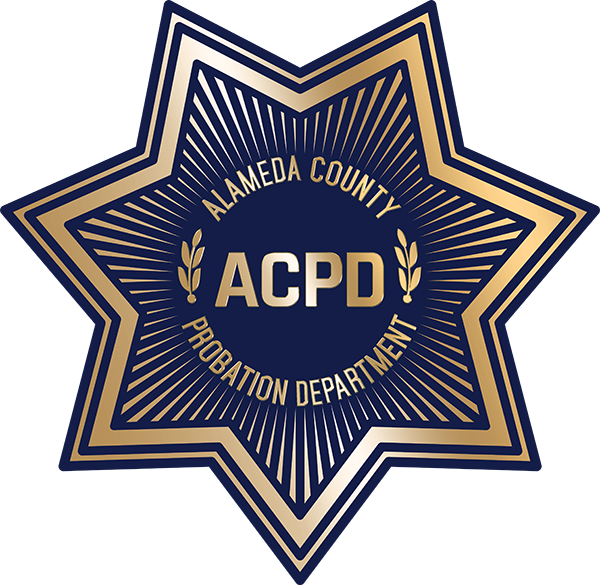Probation Department Vision, Mission, History
Vision
The Alameda County Probation Department (ACPD) is committed to making our communities the safest in the nation.
Mission
To support and restore communities by providing compassionate supervision and accountability to justice-involved youth and adults, and to provide preventive and rehabilitative services through evidence-based practices and collaborative partnerships.
Honoring the Belief that People Can Change
“A focus on outcomes does not simply mean reduction in recidivism or victimization, although those are important goals. Inherent in achieving them, though, are more basic outcomes in the lives of people involved in the criminal justice system. Housing, employment, physical and mental health, and positive relationships are all components of a productive and crime-free life. Policies that limit access to social services on the basis of criminal convictions are destructive to public safety because they remove crucial sources of support for justice-involved people who are in the process of rebuilding their lives. These collateral consequences also go against our first core value of the dignity of individuals and their ability to change.”
(Still, Broderick, Raphael, 2016)
The ACPD strives to empower staff, collaborate with youth, adults, their families and the community, using research and data to inform our practices, and honoring the belief that, given the appropriate opportunities and tools, people can change. Our path to attain our vision and outcomes are forged through our commitment to our Strategic Plan: Vision 2023.
Probation History
In 1841 in Boston, Massachusetts a shoemaker named John Augustus offered to help the court in assisting drunks, vagrants and petty thieves to better themselves.
According to the Harvard Law School Archives, Augustus asked the judge to put a common drunkard in his care. When he returned to Court after a period on probation, no one, not even the scrutinizing officers would have believed he was the same person.
Thus, was born the American Probation System. The word probation comes from the Latin verb probare that means test or prove and the Latin noun probation meaning trial on approval. Essentially it means a suspension of the sentence, release on conditional behavior and supervision and control by an agent of the court.
Mr. Augustus and his many followers were unpaid until 1878 when the Boston courts enacted an ordinance that became MA state law in 1891.
In 1903, California legislatures directed the courts to appoint probation officers and to create a separate court for juveniles.
Alameda County's first unofficial probation officer was Anita Whitney, herself in front of the court for "some difficulty". Unpaid, she spent a few months caring for court probationers.
The first official paid Probation Officer was a young attorney named Ezra Decoto. He went on to become a Superior Court Judge. For $50.00 a month, "he would visit the courts twice a week and do what he could toward securing probation in some cases."
Mr. Decoto's first Probation Annual Report said, "113 juveniles’ cases had been placed in his charge, and 45 cases of culprits over 16 years of age. Of these, only 5 had been unworthy of the trust reposed in them and had been sent to prison."
In 1907 Christopher Ruiz, a Deputy Probation Officer, became the Probation Officer with an office in the Court House at 4th and Broadway. In 1916, Oliver Snedigar became the Department Chief until 1953, when Lorenzo Buckley became Chief.

